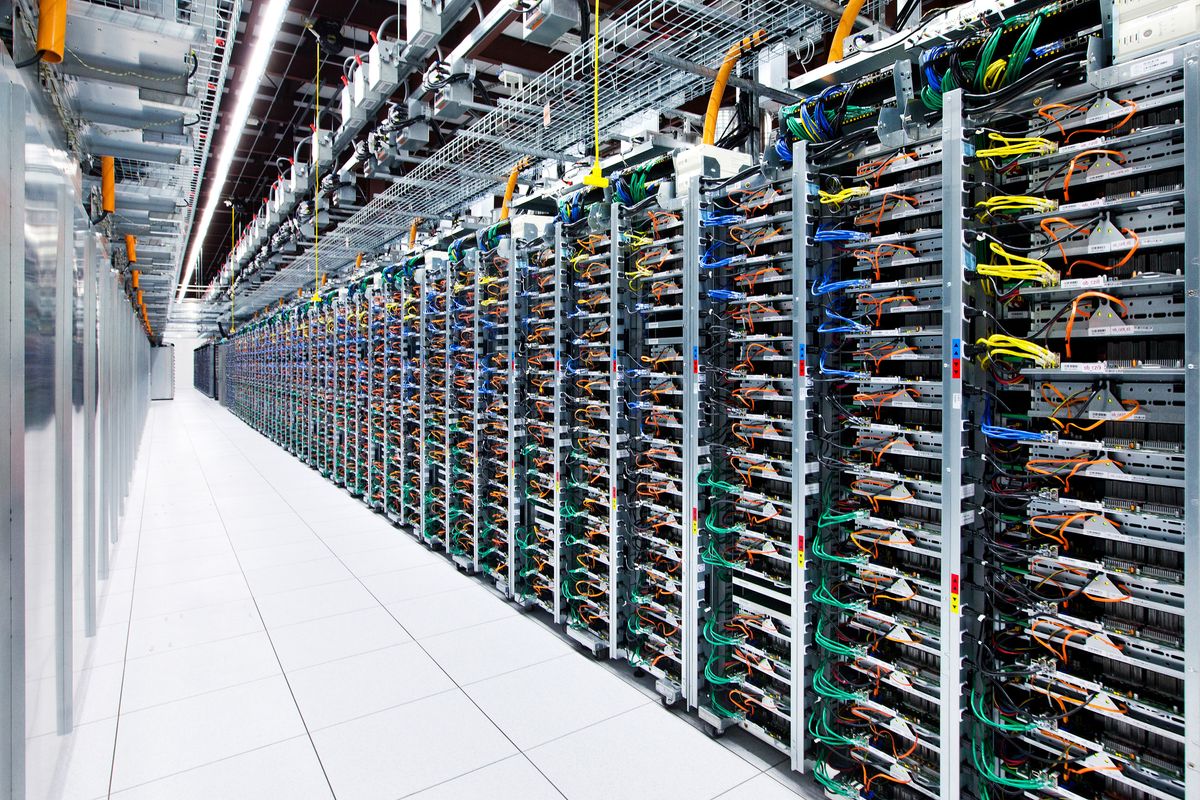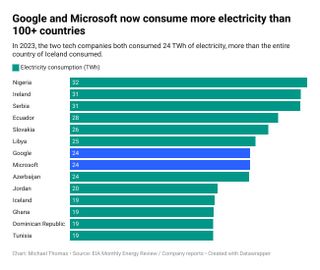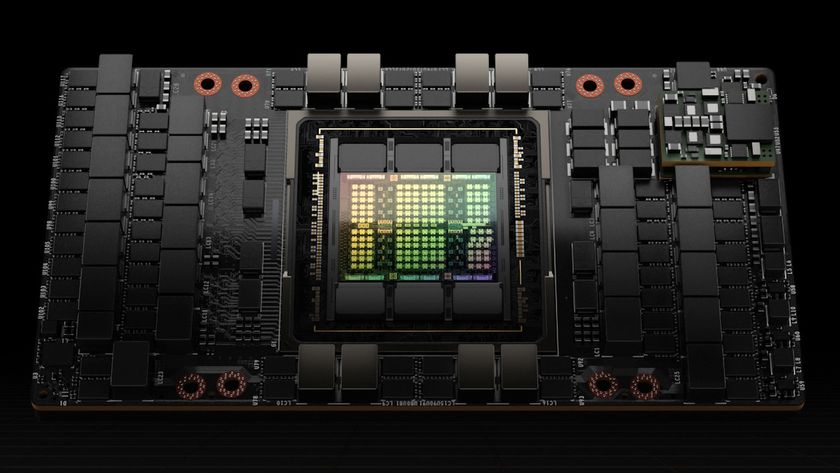Google and Microsoft consume more power than some countries
But they generate more money too.

In 2023, Google and Microsoft each consumed 24 TWh of electricity, surpassing the consumption of over 100 nations, including places like Iceland, Ghana, and Tunisia, according to an analysis by Michael Thomas. While massive energy usage means a substantial environmental impact for these tech giants, it should be noted that Google and Microsoft also generate more money than many countries. Furthermore, companies like Intel, Google, and Microsoft lead renewable energy adoption within the industry.

Detailed analysis reveals that Google's and Microsoft's electricity consumption — 24 TWh in 2023 — equals the power consumption of Azerbaijan (a nation of 10.14 million) and is higher than that of several other countries. For instance, Iceland, Ghana, the Dominican Republic, and Tunisia each consumed 19 TWh, while Jordan consumed 20 TWh. Of course, some countries consume more power than Google and Microsoft. For example, Slovakia, a country with 5.4 million inhabitants, consumes 26 TWh.
This comparison highlights the massive energy requirements of high-tech companies: data centers operated by Google and Microsoft have a considerable environmental impact. But what if we compare the power consumption and money generation of Google and Microsoft to some of the countries mentioned?
In 2023, Google generated $305.6 billion in revenue, while its economic impact, including tools like Google Search, Google Cloud, and YouTube, contributed approximately $739 billion to the economy, according to Google itself.
Microsoft posted a revenue of $211.9 billion for 2023. Keeping in mind that the vast majority of the world's population uses Microsoft Windows and Microsoft Office and loads of online applications run on Microsoft Azure, the economic impact of Microsoft's products is probably counted in trillions of dollars.
Comparing this to countries with the same ballpark energy consumption, Azerbaijan's GDP was about $78 billion, Slovakia's GDP was around $127 billion, and Iceland's GDP was approximately $30 billion in 2023.
The economic output of Google and Microsoft by far exceeds these countries' GDPs, highlighting the vast financial scale of these tech giants relative to their substantial electricity consumption.
Stay On the Cutting Edge: Get the Tom's Hardware Newsletter
Get Tom's Hardware's best news and in-depth reviews, straight to your inbox.
While substantial electricity consumption by Google and Microsoft underscores the need for discussions around sustainability and the adoption of renewable energy within the tech industry, these companies lead the industry's adoption of renewable energy sources.
In fact, Google has long been a pioneer in using renewable energy. The company has been carbon neutral since 2007, and aims to operate on 24/7 carbon-free energy across all its data centers by 2030. In 2023, Google announced its continued investments in renewable energy projects, expanding its portfolio to include a variety of wind, solar, and other renewable energy sources.
As for Microsoft, it has committed to becoming carbon-negative by 2030, which means it aims to remove more carbon from the environment than it emits. The company is also targeting zero waste production and positive water usage by the same year. In 2023, Microsoft increased its contracted portfolio of renewable energy assets to over 19.8 gigawatts, covering projects in 21 countries. The company is also working on reducing its direct operational emissions and addressing its indirect emissions, particularly those associated with the construction of new data centers and hardware components.

Anton Shilov is a contributing writer at Tom’s Hardware. Over the past couple of decades, he has covered everything from CPUs and GPUs to supercomputers and from modern process technologies and latest fab tools to high-tech industry trends.
-
stonecarver I would love to see these same statistics with the same charts vs 2010 side by side. Social media and AI are the biggest change since 2010 you still have the same silly day wasting cat videos today as 2010. Would be interesting I guess to see that.Reply -
hotaru251 TBH world should just come to a global understanding: those single companies/business who use extreme amounts of power should be forced to support improving the power supply as they put most strain on the grids.Reply -
brandonjclark Reply
I'd like to see them be compliant with US law, for starters...hotaru251 said:TBH world should just come to a global understanding: those single companies/business who use extreme amounts of power should be forced to support improving the power supply as they put most strain on the grids.
https://apnews.com/article/microsoft-taxes-irs-96eb66abe86de19f1108209a8d57431a -
gtarthur Why wasn't Amazon, the world's largest cloud provider, included in this story? For that matter, why not also include Meta/Facebook? Singling out Microsoft and Google actually diminishes the magnitude of the issue. It also gives the appearance of prejudice.Reply -
ThomasKinsley The power requirements are absurd, and the ironic part is that it's not that hard to fix. We can cut the power requirements required by AI data centers by 9/10ths if we introduced better AI that runs locally on the device. The advent of ARM and RISC-V will also naturally lower power requirements for desktops and servers by a large percentage. Privacy legislation can also go a long way to reducing power requirements since, let's face it, a decent chunk of the Internet today is used to send ads, acquire user data, and build profiles.Reply
Experimenting with Samsung Dex was a huge eyeopener on this subject. It can do most basic computing tasks while sipping only 7-25w of power. I'm not going to say you don't need a faster computer (many do!), but there IS an argument to be made that we're not being efficient with most of the current tech we have. Windows bloat can be removed so it frees up resources. Programmers can improve their apps to better allocate RAM and prevent memory leaks. We can cut power without losing any performance simply by being smart. -
strikerace Reply
Complying with anti-monopoly laws would be a bonus. Too much 'power' concentrated with too few people.Admin said:And yet, these two high-tech giants also lead the industry in terms of green energy adoption.
Google and Microsoft consume more power than some countries : Read more -
USAFRet Reply
Do you have any verification/corroboration of this "9/10ths"?ThomasKinsley said:We can cut the power requirements required by AI data centers by 9/10ths if we introduced better AI that runs locally on the device. -
ThomasKinsley Reply
That number is an estimate meant to be within the order of magnitude. There are multiple variables, including AI capabilities of desktop processors and how popular local AI will be. The more it is used over online models, the more we will save power. Local AI is doing away with GPU requirements, which should significantly lower power requirements.USAFRet said:Do you have any verification/corroboration of this "9/10ths"?
There is a growing body of data on how AI will increase power requirements in datacenters. It's something we can fix.
https://www.goldmansachs.com/intelligence/pages/AI-poised-to-drive-160-increase-in-power-demand.html -
USAFRet Reply
So, just a guesstimate.ThomasKinsley said:That number is an estimate meant to be within the order of magnitude. There are multiple variables, including AI capabilities of desktop processors and how popular local AI will be. The more it is used over online models, the more we will save power. Local AI is doing away with GPU requirements, which should significantly lower power requirements.
There is a growing body of data on how AI will increase power requirements in datacenters. It's something we can fix.
https://www.goldmansachs.com/intelligence/pages/AI-poised-to-drive-160-increase-in-power-demand.html
OK.
"AI" depends on LOTS of data, readily accessible. LOTS = more data than your PC or laptop can hold. By several orders of magnitude. -
ThomasKinsley Reply
I prefer to call it a Fermi estimate. 😛USAFRet said:So, just a guesstimate.
OK.
"AI" depends on LOTS of data, readily accessible. LOTS = more data than your PC or laptop can hold. By several orders of magnitude.
Google is offering "quantized models" small enough to fit on local devices. While it says it's local, it leverages Cloud Workstations, so I presume this is a hybrid model. For a true offline experience, FreedomGPT requires around 5GB of storage (as of 2023) and 16GB of RAM.
Most Popular




